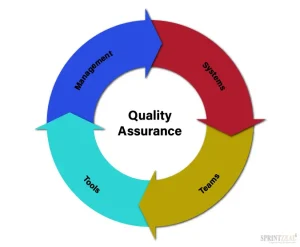
Top Assurance Frameworks for Small and Medium Enterprises
Introduction
In today&8217;s rapidly evolving business landscape, small and medium enterprises (SMEs) face numerous challenges, from regulatory compliance to operational risks. As businesses grow, ensuring stability and managing potential threats become critical. Assurance frameworks offer SMEs the tools and strategies needed to safeguard their operations, ensure continuity, and build trust with stakeholders. By implementing effective assurance systems, SMEs can not only mitigate risks but also create a foundation for sustainable growth. This guide explores the top assurance frameworks tailored to SMEs and how they can bolster risk management, compliance, and long-term success.
&8212;
1. Ensuring Business Continuity and Risk Management for SMEs
For small and medium enterprises, the importance of ensuring business continuity cannot be overstated. Unexpected disruptions, such as economic downturns, cyber threats, or operational inefficiencies, can significantly impact a business&8217;s ability to function. Implementing robust assurance frameworks helps SMEs identify risks early on and put measures in place to manage them. Business continuity plans, combined with risk management strategies, ensure that SMEs can navigate challenges and maintain seamless operations in any situation. By focusing on proactive risk assessment and mitigation, businesses can create a more resilient infrastructure, safeguarding their long-term success.
2. A Guide to Implementing Effective Assurance Systems for Growing Businesses
As SMEs grow, so do the complexities of their operations and the risks associated with them. Implementing an effective assurance system is key to navigating this growth without compromising on quality, compliance, or security. Assurance systems encompass processes that help SMEs monitor their performance, adhere to legal and regulatory standards, and ensure the integrity of their operations. To implement these systems, businesses must first identify key risks and vulnerabilities. From there, they can establish controls and policies that provide oversight and accountability. Regular audits, both internal and external, are vital in ensuring that these assurance systems remain effective and aligned with business goals.
3. How Small Businesses Can Adopt Reliable Assurance Frameworks
Many small businesses may feel that implementing comprehensive assurance frameworks is out of their reach due to resource constraints. However, several scalable and affordable frameworks can be adapted to suit smaller enterprises. By starting with basic risk management and compliance systems, small businesses can gradually enhance their assurance capabilities. Using tools such as ISO standards, which offer a globally recognized set of frameworks for quality, environmental, and information security management, small businesses can ensure that they are operating within best practices. Adopting these frameworks improves internal processes and builds trust with clients, investors, and regulatory bodies.
4. Boosting Trust and Compliance: Assurance Strategies for SMEs
One of the primary benefits of an effective assurance framework is the boost it provides in terms of trust and compliance. Clients, partners, and regulatory agencies are more likely to engage with businesses that demonstrate strong adherence to industry standards and regulatory guidelines. SMEs can use assurance strategies to showcase their commitment to quality and compliance, which enhances their credibility in the marketplace. Key strategies include regular risk assessments, implementing compliance management systems, and integrating industry-specific assurance frameworks that reflect the nature of the business. This proactive approach not only minimizes risks but also builds a solid reputation for reliability and transparency.
5. Securing Your Business: Top Assurance Frameworks for SMEs
Security is a pressing concern for SMEs, particularly with the rise of cyber threats and data breaches. Assurance frameworks such as ISO/IEC 27001 (Information Security Management) and NIST (National Institute of Standards and Technology) offer structured approaches to safeguarding sensitive information. These frameworks help SMEs identify potential vulnerabilities, implement security controls, and respond effectively to security incidents. By adopting these top assurance frameworks, businesses can strengthen their security posture and ensure that they are prepared to handle any threats that may arise. Moreover, these frameworks help SMEs comply with data protection regulations, such as GDPR, that require businesses to protect customer information.
6. Building a Strong Foundation: Assurance Frameworks for Small Enterprises
For small enterprises, building a strong foundation for future growth begins with implementing the right assurance frameworks. These frameworks provide a structured approach to managing risks, ensuring compliance, and maintaining the quality of products and services. The foundation of a successful business relies on consistent performance and the ability to adapt to market changes. By adopting industry-standard frameworks like ISO 9001 for quality management or COSO (Committee of Sponsoring Organizations) for risk and control, small enterprises can ensure that their operations are built on sound principles. This foundation supports both stability and scalability, helping businesses thrive in competitive environments.
7. Risk, Compliance, and Beyond: Assurance Solutions Tailored for SMEs
SMEs face a unique set of challenges when it comes to risk and compliance management. Tailored assurance solutions offer businesses the flexibility to address specific needs without the complexity of larger, more rigid frameworks. These solutions focus on key areas such as operational risks, regulatory compliance, and financial controls. SMEs can benefit from assurance models that are designed to grow alongside their businesses, ensuring they stay compliant as regulations evolve. By using scalable solutions like enterprise risk management (ERM) or industry-specific compliance platforms, SMEs can strike the perfect balance between risk mitigation and business growth.
8. Navigating Assurance Challenges: A Framework for Small and Medium Enterprises
Navigating the assurance landscape can be daunting for SMEs, particularly when faced with a wide range of regulatory requirements and operational risks. A well-defined framework helps businesses stay on course, providing clear guidelines on managing risks, ensuring compliance, and improving overall performance. Frameworks such as the COSO ERM or the COBIT (Control Objectives for Information and Related Technologies) can be customized to meet the specific needs of SMEs. By taking a systematic approach to assurance, businesses can anticipate challenges, develop action plans, and ensure continuous improvement. This structured approach empowers SMEs to remain agile and resilient in a competitive marketplace.
9. SMEs and Assurance: Strengthening Your Business with Proven Frameworks
Proven assurance frameworks offer SMEs the tools needed to strengthen their businesses, improve operational efficiency, and mitigate risks. Frameworks such as ISO 31000 for risk management or ITIL (Information Technology Infrastructure Library) for IT service management provide SMEs with globally recognized standards that enhance their processes. By incorporating these frameworks into their daily operations, businesses can benefit from increased accountability, better resource management, and improved customer satisfaction. These proven models help SMEs not only stay compliant but also create a culture of excellence that fosters long-term success.
10. Practical Assurance Models for Sustainable Growth in Small Businesses
Sustainable growth is a key goal for any small business, and assurance frameworks play a crucial role in achieving it. Practical models, such as the Balanced Scorecard or Six Sigma, focus on continuous improvement and long-term value creation. These models provide SMEs with actionable insights that can drive performance, reduce waste, and optimize processes. By focusing on sustainability and scalability, these assurance models enable small businesses to grow efficiently while maintaining high standards of quality and compliance. Practical, flexible, and result-oriented, these models offer a roadmap for SMEs looking to achieve sustainable success in their industries.



